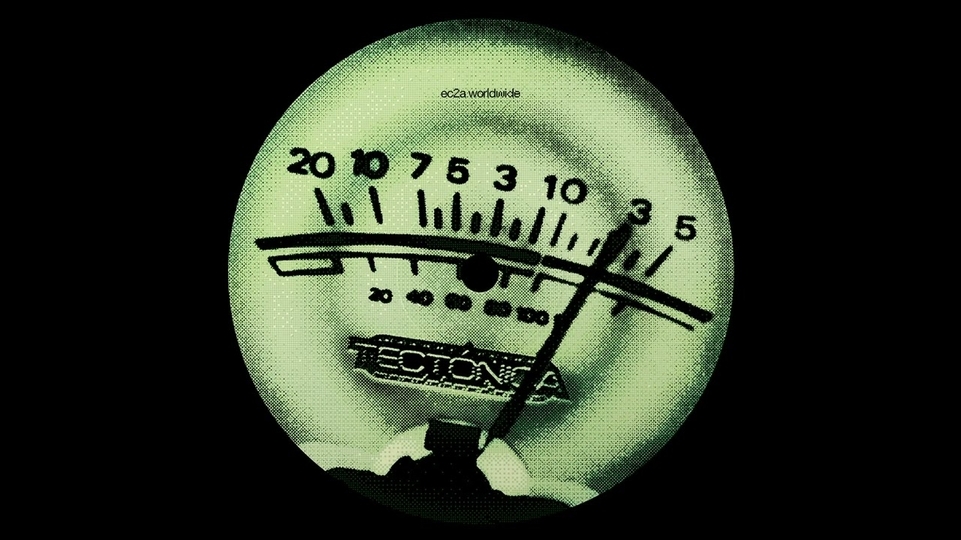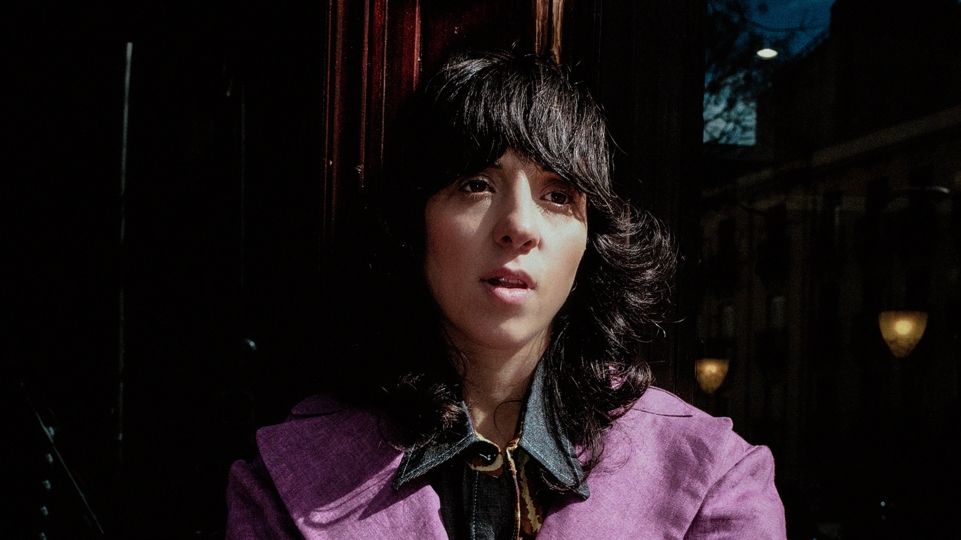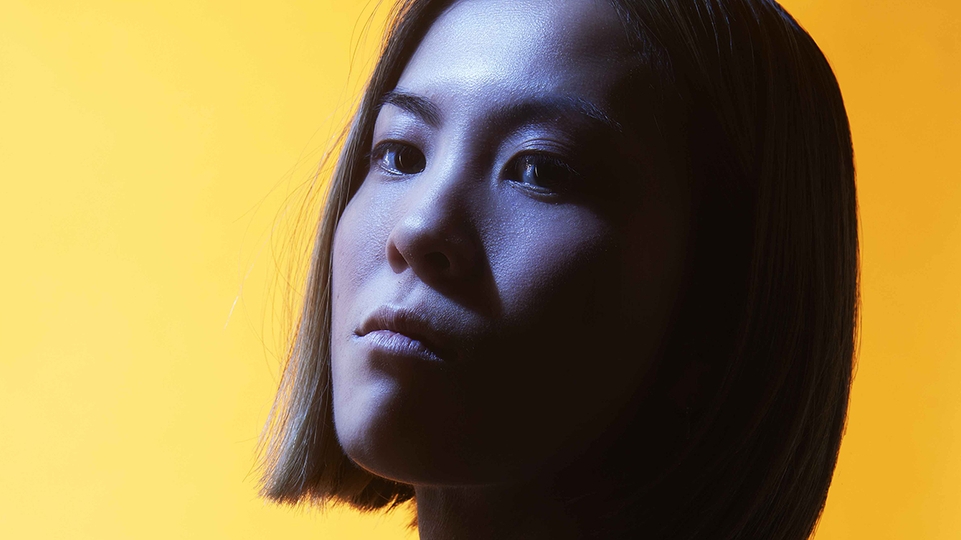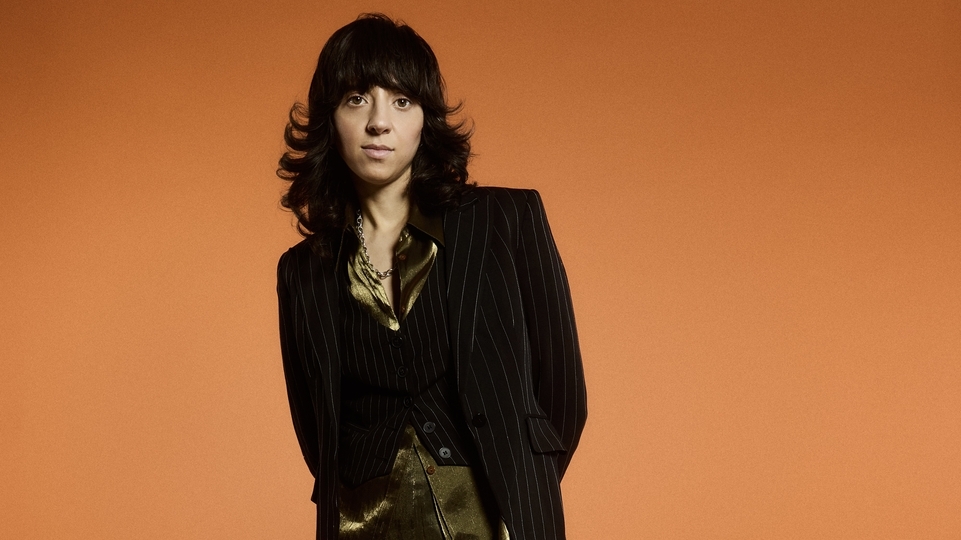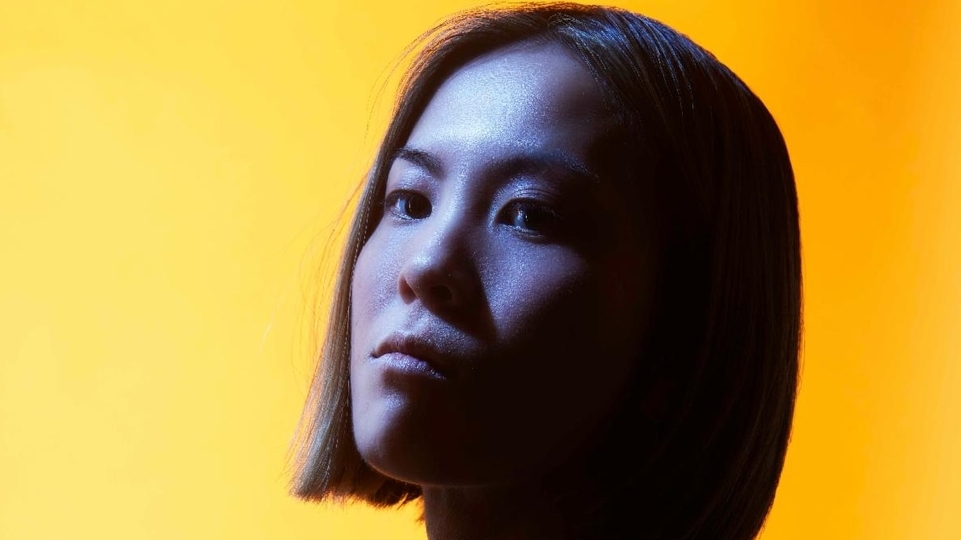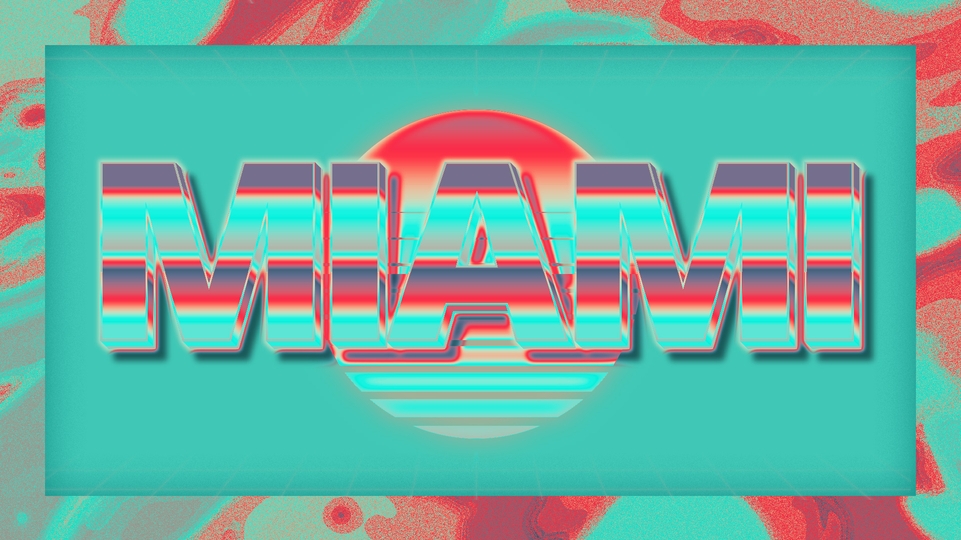
DJ Mag’s artists to watch in 2023
Introducing the artists set to make waves this year: from new-school, trance-inflected house to amapiano and Afro-tech fusions, experimental club music to garage bangers, full-spectrum drum & bass and beyond — these are the DJs and producers set to make 2023 their own
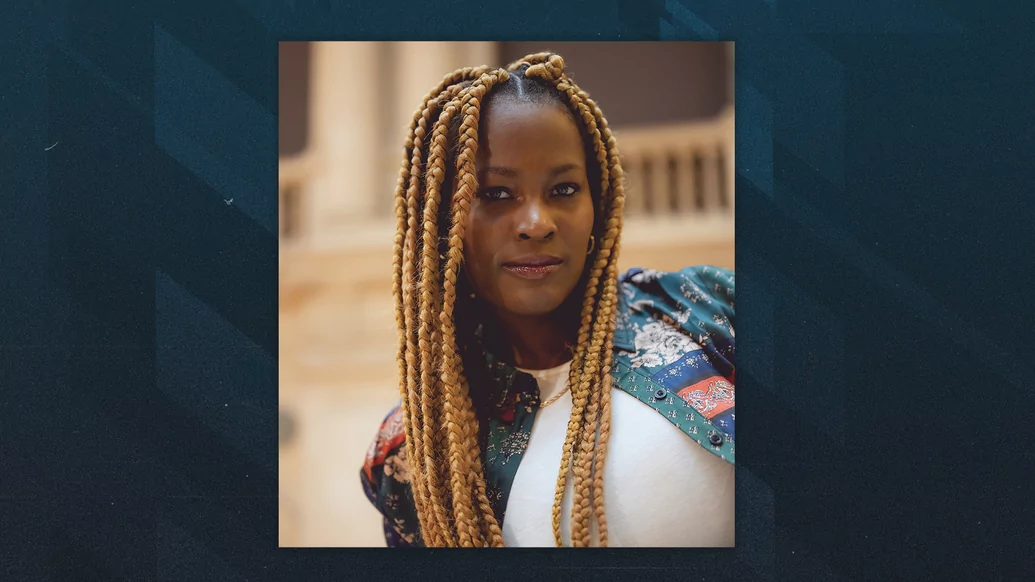
Breaking through at Bournemouth’s drum & bass-focused House Of Hi-Fi nights, Ama’s electrifying and energetic sets draw inspiration from liquid, jungle and IDM. With the encouragement of other women d&b DJs, she’s become a fixture of clubs and festivals across the UK
Ama is the epitome of a full-spectrum drum & bass DJ. Veering between high-energy belters, soulful liquid and Amen jungle, the Bournemouth-based DJ’s passion for the scene shines through in her musically diverse selection. “I love to take people on a journey,” she tells DJ Mag. “When I was younger, my favourite sets would always be the ones that took me on peaks and troughs. I try to remember how I felt as a raver, and cram as much as I can into an hour.”
Ama’s journey didn’t start in dance music, but rather in a band called Told, who she played with in the noughties (back when Pendulum were a regular warm-up act at the rock gigs she attended). “We were influenced by that Limp Bizkit/Linkin Park sound — putting electronic music in with rock,” she says. “We were using Fruity Loops at the time, so that’s when I started messing around with production.”
In 2009, Ama headed north to study in Newcastle. There, influenced by artists like Aphex Twin and Moderat, she began composing IDM. “I wanted to create music that was experimental and strange, that made you feel a bit uncomfortable when you listened to it,” she says. But playing her tracks live posed a problem. None of them sounded right coming out of Ableton, so Ama set about learning to DJ, using second-hand RJD2 and DJ Shadow records to practise beat-matching.
It was in Bournemouth, where Ama moved after university, that she truly immersed herself in drum & bass, though she initially struggled to graduate from “kitchen DJ”. Unsure how to progress, she messaged London-based DJ Sweetpea, who encouraged Ama to persist in the first of several acts of solidarity between women that helped to galvanise her career.
House Of Hi-Fi recruited Ama as a resident in 2019 where, alongside Sheba Q, Kira, Kyro and La Lune, her reputation quickly grew. A viral video showed her playing the Mr Whompy ice cream van at Boomtown festival, when Inja, who happened to be walking past, jumped on the mic as she dropped his and Benny L’s ‘Vanta Blackin’. EQ50 published her mix for Black History Month, while co-founder Flight featured Ama in a series of tweets spotlighting Black women in drum & bass.
“It was a nice time to be introduced into the scene,” says Ama. “I feel like people are becoming more accepting of femaleswanting to be DJs. It broke down those barriers.” And the bookings just keep coming. This year, Ama bagged slots at Outlook UK, RAM’s 30th anniversary party and her first- ever Glastonbury, and returned to Reading & Leeds’ BBC Radio 1 Dance Stage, which holds a special place in her heart as a veteran rocker. “It’s funny, because that stage introduced me to drum & bass,” she says. “It was a real ‘pinch me’ moment. I remember looking at people like Enter Shikari at Reading & Leeds, and there’s kids out there looking at me.”
Next on the cards is releasing some tracks. Ama is busy getting her productions robust enough for a lively dancefloor. “I had such a heavy IDM background when I started producing, so it would be awesome to find a way to move that into drum & bass,” she says. She dreams of starting a label to platform that overlap between rave-ready bangers and uncanny electronica. “I’d love to work on a label that pushes females of colour into the scene,” she says. “There are so many Black females making sick tunes. I don’t see it being released by other labels.” What’s clear is that Ama, even as she’s played the long game, is just getting started. With bags of energy on and off the decks, she’s ready to propel her career to new heights. We can’t wait to see where she lands next. Becca Inglis
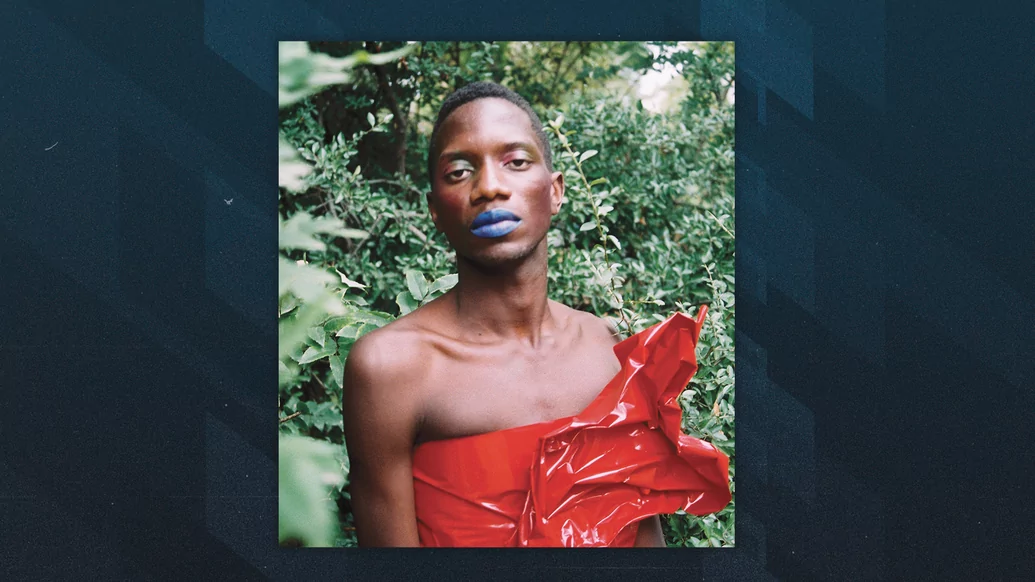
Co-founder of the ANTI-MASS collective and signed to the groundbreaking Nyege Nyege offshoot Hakuna Kulala, Uganda’s Authentically Plastic is challenging conventions and pushing dance music into the future
To Uganda’s Authentically Plastic, words like ‘fluid’ and ‘hybrid’ seem passé. “I’m interested in what comes after the mutation,” they say. “We know what happens when things have been mixed together perfectly. I want to look beyond that when I’m making music.” This aesthetic of beyondness manifests in their projects — especially new album ‘Raw Space’ on the Hakuna Kulala label — as a prismatic beam of polyrhythmic abrasions, casting jagged shards of vogue, gqom, and industrial techno into mesmerising patterns, playfully shaking electronic music’s diasporic roots.
Admiring critics have called their sound hostile, flattened, even aggressive, but Authentically Plastic is after something more than punchy catharsis. “The idea of compression as a counterpoint to the Western musical ideal of depth of field is fascinating,” they say. “So much music wants to draw things apart, to separate each sound into an individual point in space. I want sounds to have friction, of music, rhythms, cultures coming into close contact, into conflict. Putting disparate things nearby, rubbing up against one another, creates a spatial tightness that generates something new. It’s sharp, modish. It’s a form of empowerment.”
The DJ, producer, and founder of Kampala’s ANTI-MASS party crew has led an artistic life based in juxtapositions and synthesis. While studying architecture at university in South Africa, they discovered both the kwaito and gqom clubs of Cape Town and the experimental electronics of groups like The Knife and Gang Gang Dance. “I had never considered music as a path before,” they say. “But the sounds were incredibly exciting. I started digging and digging. I got into post- punk and industrial music. I listened to a lot of Konono No1 and Congotronics [International] records, Thomas Mapfumo and other post-colonial musicians. All of these genres sounded related to me. I thought about music the way I thought about architecture: Why would someone make something like this?”
From South Africa, Authentically Plastic moved to California’s San Francisco Bay Area, where they could express their queerness more freely — and see how music intertwined with identity. “I went to the New World Dysorder parties in Oakland with DJs Jasmine Infiniti, Cali Rose, Yha Yha, and others, that featured queer and trans people of colour. In San Francisco, I went to Honey Soundsystem parties, which were the big underground queer parties. It was very moving. It’s where I first really encountered techno as its own thing, in a queer atmosphere.”
Despite being hypnotised by Jasmine Infiniti’s use of four CDJs to create a canvas-like wall of sound, something they still channel in their sets, Authentically Plastic didn’t touch the decks until their visa ran out and they went home to Kampala. “After all this travel, I realised what we didn’t have, and wanted to fill that gap,” they say. To escape the authorities’ queerphobic oppression, Authentically Plastic and several other DJs began throwing underground house parties, out of which ANTI-MASS grew as a way to exist beyond those spaces. Soon Uganda’s Nyege Nyege techno crew discovered them at one of these parties and booked them on the spot. (When Authentically Plastic debuted at the Nyege Nyege festival, they were dubbed “Demon of the Nile” by conservative media outlets.) Hakuna Kulala honcho and Congolese techno hero Rey Sapienz nudged Authentically Plastic to make their own music. “It felt amazing right away. Once I started making music, I started reading a lot more. The album is so informed by theoretical ideas... But of course, it’s also about movement.”
Authentically Plastic is currently touring Europe and preparing for their live set debut at Berghain in February for CTM Festival. “I’m very interested in what I can do in this space that for many is the very symbol of techno,” they say. “There’s no reason so many sounds shouldn’t be played there.” Marke Bieschke
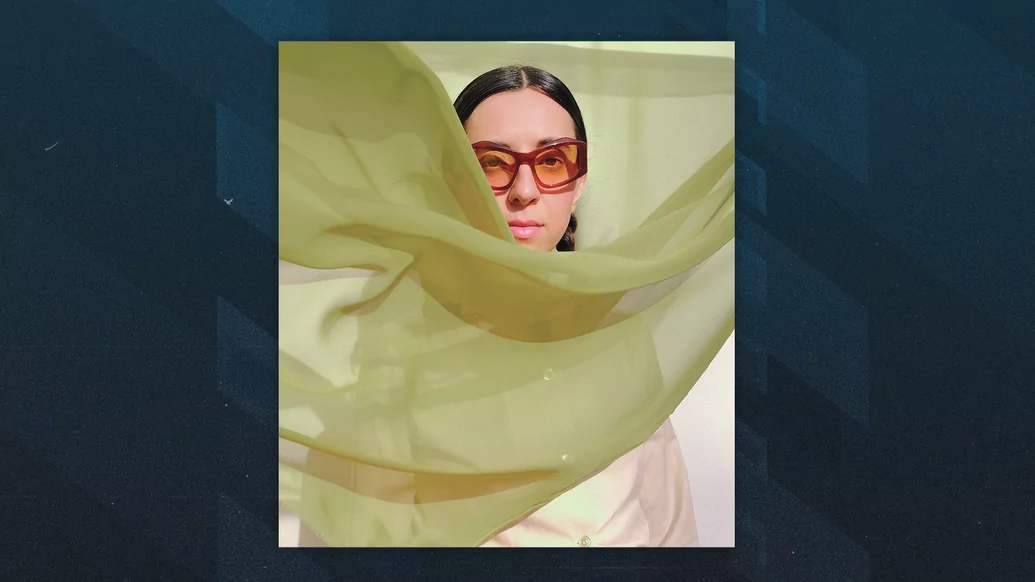
Ibiza-based Chloé Caillet captivated club crowds across Europe and the States in 2022 with her eclectic DJ sets, influenced by years spent raving in New York, Paris and Bristol and spanning disco to house, funk, and everything in-between
Chloé Caillet is well-accustomed to immersing herself in new cities and experiences. Born and raised in New York, she moved to Paris at the age of 11, lived in the UK to study music, and nowadays resides on the island of Ibiza. There’s a knowledge and eclecticism displayed through her sets and in her productions that reflects the rich cultural and musical heritage of these locations — from disco to house, funk, and everything in-between. She studied jazz and music production, and her formative years playing in bands still have a prominent influence on her creative processes now. She’s well-versed in hardware, with a love for synthesisers and live jamming. Her single ‘Love Ain’t Over’, released in 2021, captured the hearts of many and marked the debut release of her label Xcess Records, founded alongside studio partner and friend Josh Ludlow.
During the pandemic, she spent time off-grid writing music in her studio in Ibiza, and in 2022 she hit the ground running, with her DJ career taking off at lightning speed. After a run of shows in America at the beginning of the year, she returned to Europe to play esteemed clubs and festivals in Amsterdam, Berlin, London, Barcelona, Paris, Helsinki, Mykonos, Milan and Marseille, as well as enjoying a residency for Circoloco at DC-10 in Ibiza.
“I mean, it’s been incredible,” she says, talking to DJ Mag from a picturesque nature reserve in Peru. She’s taking some well-deserved time off, in-between her busy touring schedule. “I still can’t really believe that I was resident there this summer. Especially because I’ve been going there for so long. It’s a place that I went with all of my friends on Mondays, it was like our meeting point. I’ve never been more nervous in my life than my first gig there. I really enjoyed it. I’ve met so many amazing people there, there’s been so many great DJs there all summer. I’ve played both in the main room and the terrace, and it’s just been great getting to know that room, getting to know the people who work there. Every time I play, I feel like I learn something new about myself as a DJ as well. The crowd just wanna dance, they wanna party, so what a great vibe. You can go with them,” she says.
Chloé comes from the dancefloor; she was a raver first and foremost, exploring the nightlife scene in Paris from a young age through parties at legendary and now-defunct venues such as Social Club and Concrete, and at drum & bass raves at Motion in Bristol. “Every weekend, Friday to Sunday, I’d be in the club raving, in England or Paris, and now that I’m on the other side, it’s definitely crazy, because I just remember being front left,” she laughs.
She’s one half of the duo PVBLIC XCESS with Josh Ludlow, a pairing that came about after meeting at Burning Man six years ago. “We worked on a bunch of records, and it’s just been a really nice journey with him,” she says. As well as running the label together, they enjoyed a residency in the Wild Corner (aka the toilets) of Hï Ibiza last summer, and they have more productions and parties in the pipeline. This year, Chloé already has strong ambitions, with plans to start working on an album. “I love playing with other musicians. I loved being in a band, and I’d love to kind of start to bring some of those elements back,” she reveals. From February onwards, she’s gearing up for a release per month, with a new EP in the works, fresh edits for her XCESS EDITS series, more collaborations, plus some exciting remixes to come. Anna Wall
Listen back to Chloé Caillet's set for DJ Mag's BBC Radio 1 Dance Presents residency here.
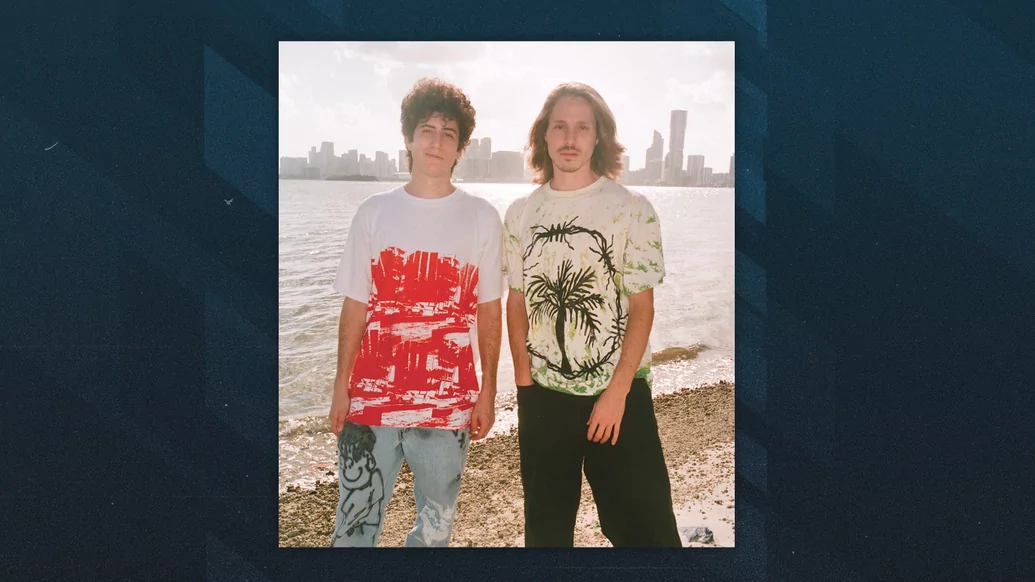
Meshing UK bass influences, techno, footwork and Latin American rhythms, the fiercely independent INVT are part of an exhilarating new wave of Miami artists
INVT (read: Innovate) are multi-disciplinary artists Luca Medici and Delbert Perez. Known both for their one-of-one clothing brand as well as being a prolific DJ-producer duo, their sound draws from UK electronic music and Latin genres like salsa, merengue, bachata and reggaeton that they were surrounded by growing up in Miami. “The city forever stamped us with that sexy, tropical style,” they explain over email.
While Luca, 24, grew up playing drums, Delbert, 25, played viola in an orchestra and knew some guitar. Since the two were already best friends having met skateboarding, Luca suggested Delbert come to the next band practice. “Delbert had never picked up a bass before, but instantly nailed it,” Luca recalls. “He’d just watch the fingers of the guitarists and follow along. At that moment, I realised that Delbert wouldn’t just be my skateboarding partner — he was musically gifted.”
The duo didn’t stick to being in a band for long. “When we first discovered Skrillex at the age of 12, we were blown away by the idea of dubstep because we hadn’t heard anything like that ever before,” Delbert says. This initiated their curiosity towards UK sounds through acts like Skream, Coki, Benga, 50 Carrot and BadKlaat. “Caspa and Rusko’s ‘FabricLive.37’ mix was a major inspiration for us,” he adds.
The two then moved to New York, where they studied music production. “Living in Brooklyn was a life-enhancing experience in all aspects,” they explain, saying that “the change of pace, the realness, the seasons, the hustle gave us a tremendous perspective on how to execute our ideas.” Being let down by vocalists while exploring their jazz/electronic side, they realised that they wanted to focus on their own project, while creating a live electronic set. “Since we both come from instrumentalist backgrounds, we felt like our performances should be more than just DJing,” they say.
Like many touring artists, the pandemic forced INVT to focus on production, but the duo — whose music is characterised by dramatic twists and turns between techno, footwork, UKG, dubstep and breaks, enveloped by Latin percussion — have been releasing music at an eye- wateringly fast rate. In 2021, they released six albums and an EP, while 2022 saw them drop four projects, including LPs ‘La Chamba’ and ‘Gazebo’, with the duo priding themselves on mixing and mastering, and making their artwork themselves. It’s a pace that one of their idols, dubstep pioneer Skream, has compared to his early years with fellow dubstep trailblazer Benga.
But there is method and careful thinking behind what feels like a spontaneous approach to releasing music, that INVT drop on their Bandcamp whenever it feels right, rather than going down the traditional label release route. “The idea of individuality has been lost in society,” they say. “We take a lot of pride in being completely independent. It’s definitely more challenging, but with every accomplishment, we lead by example. Be yourself, stand out,” they advise.
Pushing the Miami sound while on tour in Europe this past summer, which included going B2B with Skream at London’s KOKO, they are excited for what a growing interest in the city’s scene could mean for their peers. “Miami is in a new chapter. The producers are making a lot of noise, and the world is paying attention,” they say. “It feels really good, because we’ve been envisioning this for years, having these deep conversations with the Miami artists that would come by our studio about coming together — and it’s working.”
INVT are keen to remind us that they have a clothing brand too, and 2023 will see them shift some focus back to this endeavour. “One of our main goals for next year is to scale our clothing brand,” the say. While they started upcycling thrifted items, they’re now adding pieces made from their own patterns, developing more utilitarian designs for jackets and jeans. Still, the pace at which they work doesn’t seem to be slowing one bit when it comes to their productions, with the duo saying: “We’ve got a tonne of new music coming out, and also some really cool dream collabs.” Kamila Rymajdo
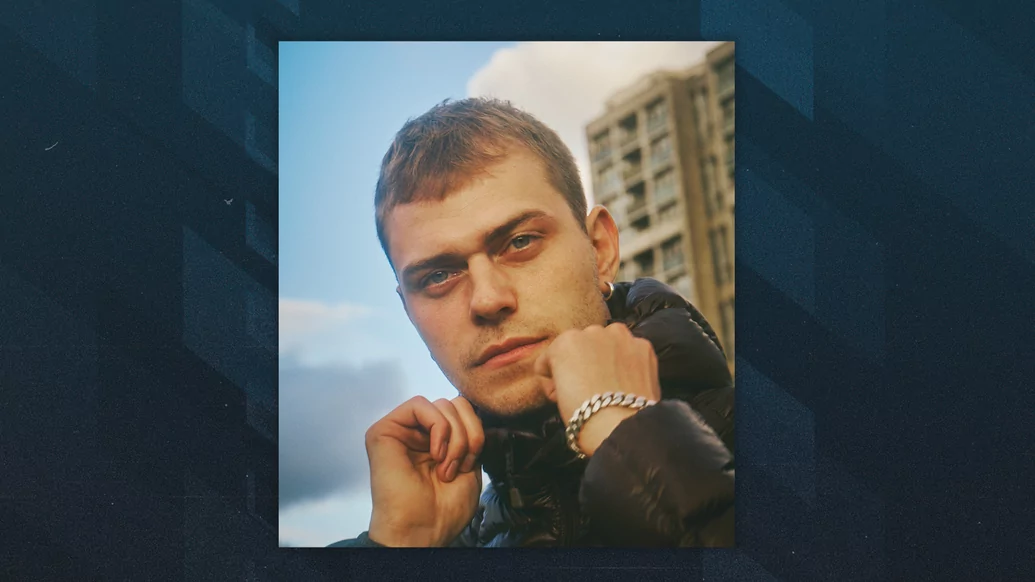
Mixing sparse 2-step with bass-heavy grime and jungle influences, Copenhagen’s Main Phase has arrived at a distinctive sound that has found him collaborating with his heroes and releasing on some of the UK’s most in-demand labels
It’s hard to believe that Adam Emil Schierbeck has only been putting releases out under his Main Phase alias since 2020, having already amassed such a strong body of music alongside a relentless tour diary that’s seen him spin with the likes of Flowdan and Killa P recently. It’s been a busy period in the studio as well, working on a number of collaborations he can’t yet reveal, culminating in a session with close friend and collaborator, Interplanetary Criminal, alongside grime royalty D Double E. “It’s just crazy,” he beams over a video call from his home in Copenhagen, during a rare moment of downtime from music. “Some of the things I had on my bucket list years ago, I’ve sort of already done them.”
Since those initial releases in 2020 via ec2a, Timeisnow and Warehouse Rave, Schierbeck has developed a distinctive, sparse sound that blends elements of 2-step with other UK club music on the bassier end of the spectrum, including grime, dubstep and jungle. Having started making music in his bedroom as a teenager, he’s been active in the electronic music scene for over 10 years, first DJing at Baggen — the Copenhagen club where his mum used to take him before he was legally old enough to go there on his own — where he now runs his own Pure Butter parties. Schierbeck has also previously put out material under a number of different names, seeing most success before Main Phase as one half of the lo-fi house duo Slim Hustla.
As Main Phase, his sound calls back to the era of garage just after the turn of the millennium, built on a less-is-more approach of dark sonics, thundering sub-low frequencies and tight, muscular drums.“That whole era is just the pinnacle of 2-step for me,” he enthuses. Schierbeck name-checks producers like El-B, early Zed Bias and Jeremy Sylvester’s Strickly Dubz releases as reference points in his education in the sound, one that was born on the internet as a young teenager “digging through YouTube and Discogs”, and shipping records over to Denmark from London’s bass- heavy club music institution DnR Vinyl. He also named his 2021 ec2a release ‘FWD Thinking’: a reference to the seminal club night of the time that played a pivotal role in helping 2-step morph into dubstep and grime and — fast-forward 20 years — the darkside garage sound he is now pushing as Main Phase.
A recent post on Schierbeck’s Instagram talked about the connection he’s subsequently built with the UK, and it’s one that has seen him form a close bond with artists including ec2a founder Dr Dubplate, DJ Cosworth, Holloway, Bluetoof, Frazer Ray and others, showcasing many of them at his Pure Butter parties, which run under the slogan “packed with UK flavours”. As well as his music as Main Phase making a big impact, his collaborative ATW project with Interplanetary Criminal also alerted the attention of DJs including Ben UFO last year. His friendship with the Manchester-based ‘B.O.T.A. (Baddest Of Them All)’ producer started during their days in the lo-fi scene together, and the pair have put out two releases under ATW on the label of the same name, including 2022’s ‘ATW002’. Two more releases are imminent on the imprint, while the pair are also about to start another label showcasing “New York City style, old-school 4/4 garage”.
Schierbeck’s BBC Radio 1 mix, which will be available from 28th January, is made up of a number of his own dubs, as well as music by close friends and influences. “It’s me and what I’ve become, and all the people around me, finally meeting my heroes,” he smiles. “It’s going to be an exciting year, because I’ve got studio sessions and remixes coming that I wouldn’t even dare to dream about when I was younger... but I’m still that weird little 14-year-old listening to records in his bedroom late at night.” Rob McCallum
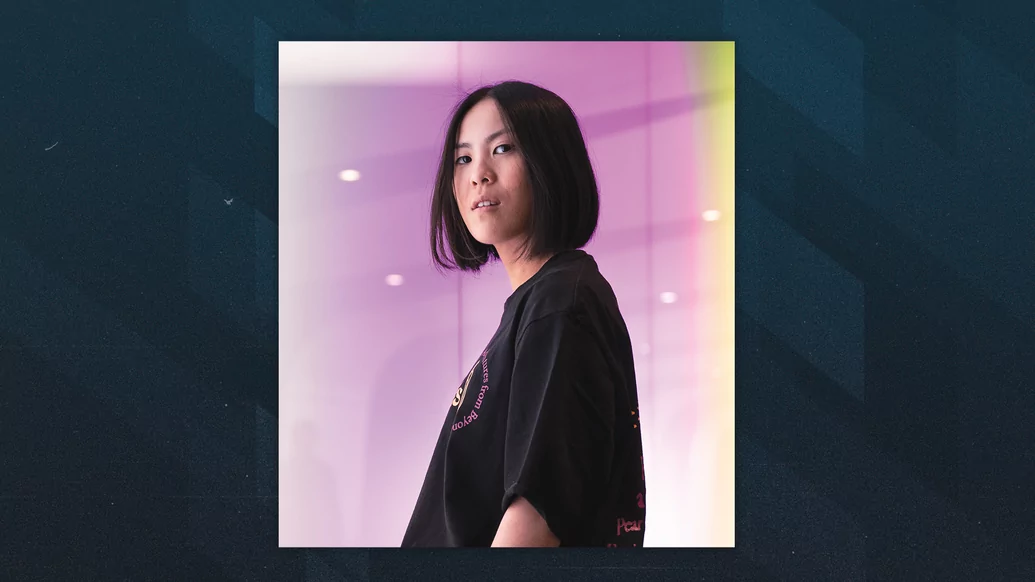
Having cut her teeth in the vibrant Bristol scene, Manami’s propulsive and mind-bending sets made an impact across the UK in 2022, while her productions have solidified into similarly trippy delights too
The reason I like DJing is having this shared experience,” says Manami, reflecting on what drives her free-flowing sets. “The feeling it communicates is euphoric. That’s something that is consistent in what I do, and what I make.” A spirit of communality is key for this Japanese-British DJ, producer and pianist — and is woven into her approach to dance music. With her trippy and ecstatic sets, she aims to unite dancers, but Manami’s also made a point of sharing her skills via workshops on the Saffron platform, which aims to address the gender imbalance in dance music by encouraging more women, non-binary and trans artists to DJ and produce. In addition, Manami has championed many upcoming artists via her radio shows for Worldwide FM and Noods.
As well as DJing frequently at venues across the UK (and increasingly, overseas), Manami is a talented producer, releasing cuts on Rhythm Section, Futureboogie, Alfresco Disco and Erbium, and an EP on Viscera Transmissions. While her earlier material tapped into breakbeat (‘The 2000’s’) and Italo disco (‘Plastic Italo’), in the last couple of years, she’s been heavily inspired by the new school trance and progressive house of labels such as Planet Euphorique and Craigie Knowes. A case in point is her track ‘Eventide In Orbit’: all trippy frequencies, acid bleeps and propellant rhythms, with a notable melodiousness that comes from her classical piano training. “I like the musicality of [that style]. Melodies, chords and pads are the kinds of sounds I’m instinctively drawn to,” she says.
Manami was born in Tokyo but relocated to Buckinghamshire, England at a young age. Later moving to Bristol for university, she joined its DJ society and began to play student events and parties, honing her abilities over time. Her first loves were Chicago house and disco — styles innovated in America’s Black and gay communities, that showed her dance music had the power to bring people together and offer a sense of liberation. “Looking at the origins of [those genres], they created spaces in which a side of society was able to feel free and liberated at a time when they felt oppressed. I felt that was a really powerful message, and a really positive thing to be a part of. I guess [I liked] the thought of being able to bring people together and have a shared experience of enjoying music.”
Another important influence was Bristol itself and its endlessly morphing electronic music scene. Nights out at Timedance, Livity Sound and Futureboogie events helped shape Manami’s varied DJ sets, which pivot between time zones and genres with grace. “I was so lucky to have gone to that city specifically to learn and to grow. There’s so many different genres of music going on in terms of nights and labels, and not just the Bristol bass music that the city is known for. With forward- thinking music, but also the old school stuff, the whole amalgamation of that, I was exposed to a wide range very quickly.”
It was venturing into production, though, that provided the major turning point in her career. Over lockdown, she put time into mastering the art, and cut tracks at the First Light studio, a free-to-use recording space in Bristol opened by Batu. “It helped kick off me feeling confident in my own electronic musicality,” she says. Today, Manami is a familiar name on discerning club line-ups. Having toured with Bicep (“a real highlight”), she’s playing the venues she always wanted to play, and travelling more than ever. Now based in London, she’s got a new recording studio, and there are big releases coming in 2023 that she can’t talk about yet. It’s all change, then, but her DJ philosophy remains the same. “I just want the crowd to feel that connection with me,” she concludes. “We travel together.” Ben Murphy
Listen back to Manami's set for DJ Mag's BBC Radio 1 Dance Presents residency here.
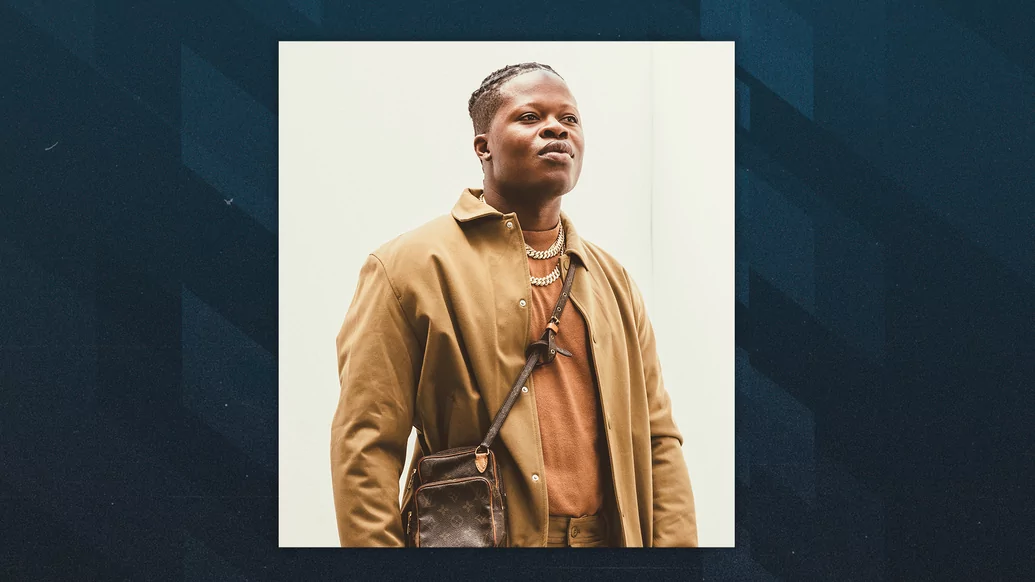
Having overcome addiction and embracing his African heritage, DJ, producer and Wokoundou label founder Philou Louzolo is collaborating with artists across the continent, fusing Afro house and techno to create dazzling new styles
Producer, DJ and founder of the Wokoundou record label, Philou Louzolo has had a transformational few years, walking a steep road to recovery, ownership, self-knowledge and worth, embracing his African-ness both personally and sonically. Filling dancefloors with Afro and techno-laden sounds, he’s earned his place as a formidable artist to watch in 2022.
Born into a mixed lineage with roots in Congo, Sierra Leone and Nigeria, his upbringing in a Dutch adopted family put him at odds as a Black musician unable to fully express himself. “My father is half-Nigerian, half-Sierra Leonean, and my mother is Congolese,” Philou says. “They got together young, having met in Holland with both adopted by Dutch families. When I was born, my parents couldn’t provide for me. My mother was traumatised by the war in Congo, and I was raised by the same parents that adopted her. I grew up in a white family, a white environment, and while they were loving and supportive, they couldn’t protect me from the racism on the outside. I don’t have a strong connection to my grandparents, and this connection to Africa is something I had to look for myself.”
After the passing of his mother in 2018, Philou found himself struggling to shoulder the traumas he had suffered, as substance abuse began to riddle his life. With a crumbling relationship finally coming to its end - leaving him with nowhere to sleep at night but hotels, then shelters, then finally the streets, while missing pivotal moments in his young daughter's growth - Philou had a life-altering reckoning to face before him. Drawing inspiration from his African roots, he came to see that the music he was creating spoke to a greater need in his life, and he reached out to the artists he knew would come to his aid. Slowly, Philou found a straight path towards his strength, and his new life, along with the album, 'African Gold', began to materialise.
Tapping talents from far north to the deepest south in Morocco's Cee ElAssaad and South Africa's Kususa and RHEA BLEK, 'African Gold' mimicked the exploration Philou needed to undergo to find himself again. Diasporic artists AMÉME, DJ Kwamzy and MoMA Ready provided brightness and nuance, and 20 tracks brimming with pride, expression and beauty helped him find his way home. Clean for over 18 months now, Philou is unstoppable. Reuniting with his daughter to teach her about the music that saved him, he's on a brand-new trajectory for himself and the continent he calls "the source".
"I never stopped believing in the source - which is Africa - and the support we can give each other. I'm grateful to be able to work with so many artists who knew I was at a low point in my life, but everyone believed in the magic we could create. We have to stay close to the source. For me, that is accepting who I am and what's within me, embracing everything I am.'
Set to release a new amapiano EP in 2023, Philou is continuing his mission to unite Africans both at home and in the diaspora, and currently working on a remix for Angolan DJ Satelite's track 'Kan Tolo', set to be released this month. In the meantime, he'll be hosting events at Amsterdam's Thuishaven Festivalterrein throughout the new year, as well as curating a night at Club Shelter in March 2023, with Benin/US DJ, AMÉME. "The future is fusion," he says. "The future is everything that is African and all that we find. Everything new is a combination of everything that has already existed. A lot of people still don't know that techno music is Black music. We have to unite and work together to see it, though... we are still divided. The goal for me is to fuse everything that comes from African creativity for a new future that everyone understands is ours." Shiba Melissa Mazaza
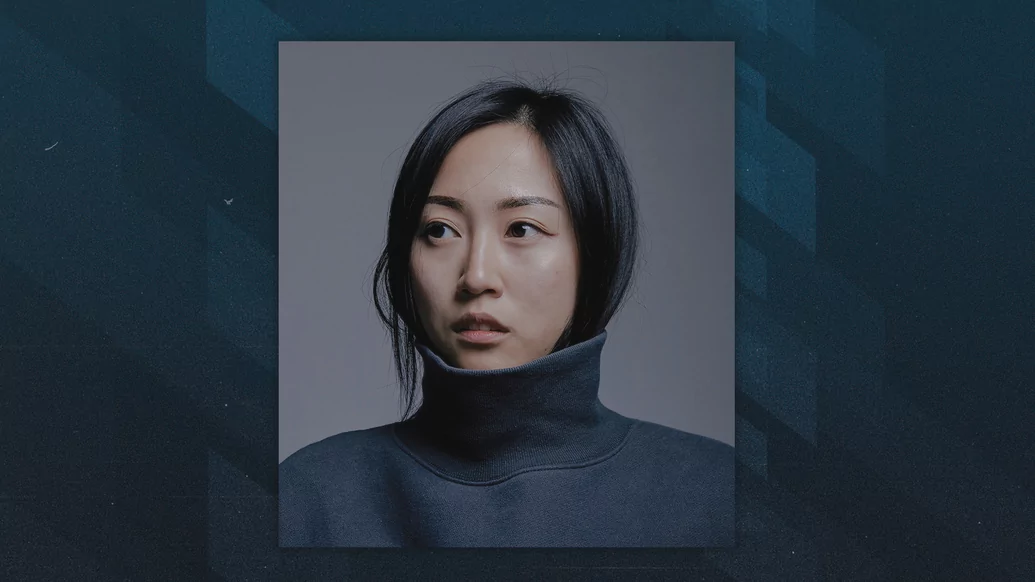
Inspired by video game soundtracks, global travels and classic cosmic disco, South Korea-born, Germany-based Shubostar’s interstellar DJ sets are in demand all around the world
Shubostar has been making music for over a decade, but her immersive brand of cosmic disco has reached new stratospheric heights in recent years. Born in South Korea and based in Germany, Shubostar’s musical sensibilities have also been shaped by her experiences in the underground scenes of Thailand and Mexico. But Shubostar’s earliest run-in with electronic music production was via video game music, which might explain her penchant for crafting otherworldly universes of sound. “When I was young, I was really crazy with old computer games, like Princess Maker or StarCraft or Korean MMORPGs,” she says. She studied video game development in high school, where her teacher introduced her to a film music producer, who taught her the basics.
This year, she’s been shuttling from country to country on tour post-Covid, picking up energy from playing at festivals like Burning Man and clubs like Phonox. “These days, travelling has been really inspiring for me. Meeting new people, eating new food, facing new culture, everything!” she says. Her DJ sets are journeys of their own, channelling the transportive potential of Italo disco’s more spaced-out offshoots into cosmic voyages of rhythm. But it was on her first Asia tour where Shubostar felt galvanised by an emergent underground energy.
“It was the highlight of this year,” she says. “I’m Korean, but I never expected that I could make an Asia tour, because important festivals and clubs are mostly in Europe or the States.” The perception of dance music as a Western cultural import to the East has served to sideline Asian producers and DJs in the global conversation. “I want to support more Asian artists, play more of their music, support their events,” she says. In Jakarta, she played two tracks by Indonesian producer Saturn, not knowing that he was in the audience. “I was playing a track and some guy came up to me and was like, ‘This is my music!’” she remembers.
Like any intrepid explorer, Shubostar has faced doubts of her own throughout the years, yet has always returned to music. After two years in Thailand midway through her career, she moved back to Korea. “I thought I was working hard, but I didn’t see a step up. So I was like, ‘Maybe it’s time for another job’,” she says. She eventually got a job as a photographer in Cancun, missing the experience of living abroad.
It was in Mexico where she picked up DJing again. “I met some DJ friend from Mexico City, and then he asked me, ‘Do you want to play at my party?’” she says. After two gigs, the warm response from the crowd inspired her to pick up the decks again. “People were asking me, ‘When do you come back? I want to book you again!’” she says. “I was like, ‘What’s going on?’” After moving to Mexico City, she started producing again, eventually launching her own label uju Records to release her tracks.
Going into the next year, she has big plans for uju. “So far on my label, I’ve just released originals from me and remixes by my favourite artists, but I want to make a cosmic disco compilation,” she says. From the groundbreaking work of Daniele Baldelli and Alexander Robotnick to the Nordic space disco of Lindstrøm, she aims to traverse through the history of the genre and its practitioners in the current era. As cosmic disco’s foremost ambassador in recent years, she’s certainly up to the task. James Gui

